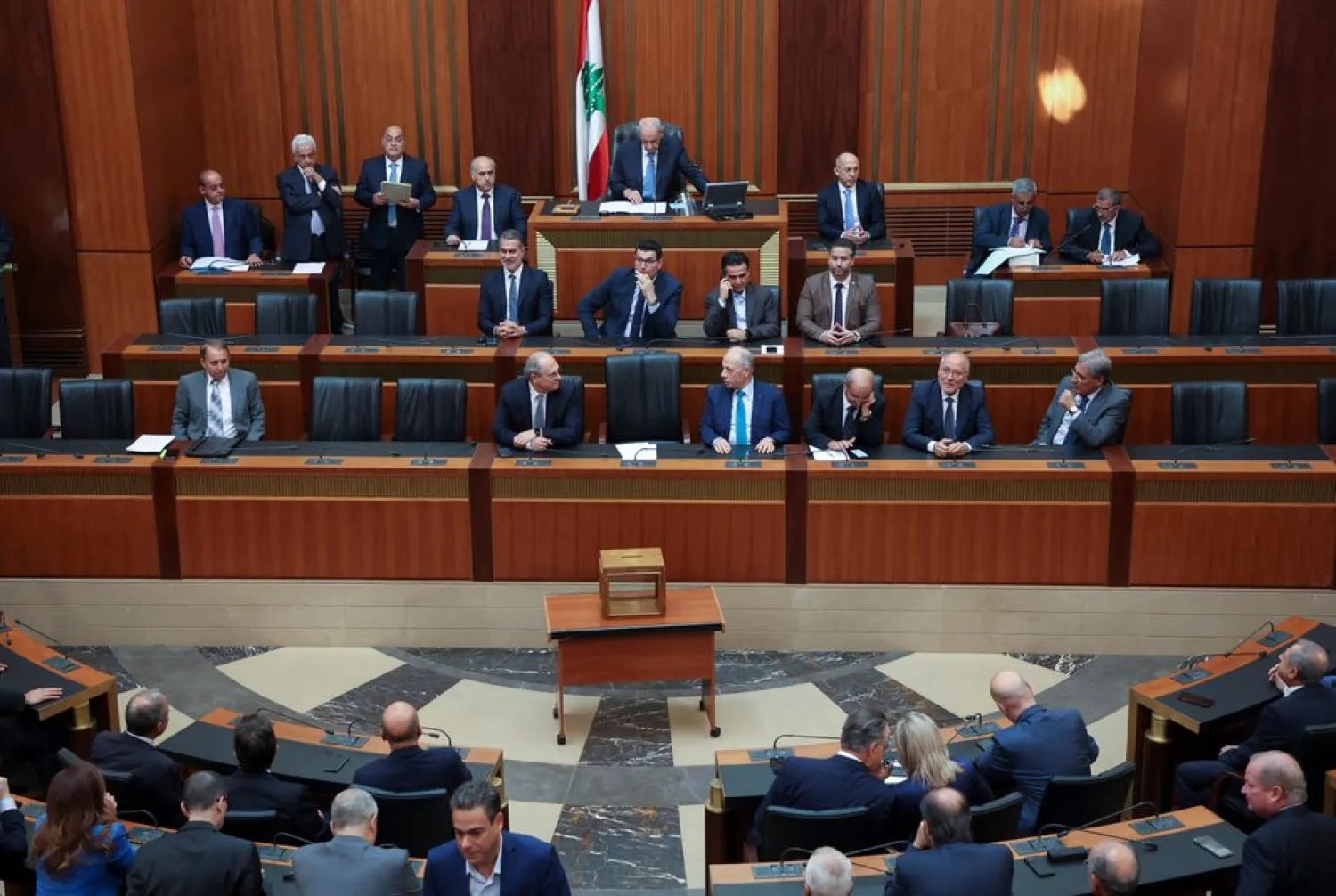Parliament’s opposition forces, represented by the Lebanese Forces, the Progressive Socialist Party (PSP), the Kataeb, the Change Movement and other independent deputies, have failed on Thursday to reach consensus over a unified candidate for the presidency.
During a parliamentary session devoted to the election of a successor to President Michel Aoun, the opposition’s votes were distributed as follows: 36 deputies voted for the head of the Independence Movement, MP Michel Mouawad, 11 others chose businessman Salim Eddeh, son of the late minister Michel Eddeh, and 10 wrote “Lebanon” on the ballot paper.
A prior understanding would have given the opposition forces the opportunity to wage a united presidential battle, with 65 votes against 63 blank papers submitted by the representatives of the Shiite duo - Amal movement and Hezbollah – and the deputies of the Strong Lebanon bloc, headed by MP Gibran Bassil.
Member of the Strong Lebanon bloc, MP Alain Aoun, denied that there had been a prior understanding with Hezbollah to cast a blank vote.
He told Asharq Al-Awsat that the Free Patriotic Movement “chose to submit white blank papers without coordinating with any of the other forces, due to the lack of consensus on a candidate so far.”
The decision of the opposition forces to vote for different candidates affected the relationship between its components.
Representative of the Change movement, Paula Yacoubian, accused the rest of the opposition forces of “overturning the understanding that we were working on.”
She said: “They reversed all the understandings, and stipulated that we support the candidate they agreed upon and who does not meet our requirements for a personality outside the political alignment… Can they secure 65 votes for Michel Mouawad?”
In response, sources in the Lebanese Forces said: “What concerns us at this stage is that the majority of the opposition components voted in favor of the presidential candidate, Michel Mouawad. Based on the principle of democracy, the door is open for consultation and communication with all these components once again to confirm that the majority wants this direction.”
The sources added: “All opposition parties as well as independents must join this sovereign reformist option; because it serves the unity of the opposition.”









